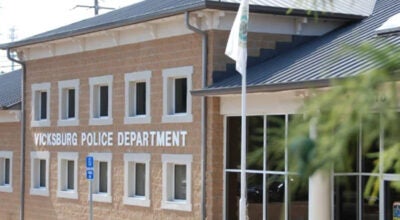Hope for change reigned after Selma
Published 12:02 am Saturday, March 7, 2015
The beating of 600 civil rights marchers a half-century ago at the Edmund Pettus Bridge in Selma, Ala., still resonates in Vicksburg.
It’s deeper meaning of impending change is now evident, but after the events of March 7, 1965, when Alabama state troopers and a local posse gassed and beat 600 men women and children, it was incomprehensible.
“I was so hurt about the way they were treated and the way things were, particularly since I had gone to Korea and stayed over there 15 or 16 months. I couldn’t believe it, from what I had gone though,” said Jim Stirgus Sr., who was principal of the all black Rosa A. Temple High School in 1965. “Honestly, if I sit and think about it too much now, I will cry.”
The beatings left uncertainty around the county for blacks who were in the midst of a struggle for equal voting rights. It especially rang true in Vicksburg where the home of an integrated group of civil rights workers had been bombed the previous October.
“I didn’t know what was going to happen, but I knew there was no escape from change,” the Rev. Dr. Walker Wright said.
Wright, who now lives in Memphis, had been active in the Freedom House project through the Council of Federated Organizations or COFO. He was a student at Temple High School when the civil rights marchers were attacked in Selma. The beatings, which were televised across the globe, brought national attention to the cause he and others had spent countless hours fighting for.
The media attention to the plight of blacks across the South was the silver lining to Selma, Wright said.
“Knowing what I know now, and understanding what it was like based on the word of mouth that I got from my grandparents passed down from my great-grandparents, had that not occurred, things would not have changed,” he said. “You have to do something in order to cause a change. It’s like a toothache. You have to get to the root cause of the problem or the pain will never change.”
Vicksburg had been less violent than other parts of the South, but the mood in the black community was constantly on edge, said Patsy Gibbs, the sister of civil rights attorney James Winfield.
Winfield had been selected in 1963 to be the first black student to enroll in the University of Mississippi, but the State Sovereignty Commission vetoed his selection.
“We started living under tenseness in 1963 because of my brother’s enrollment application at Ole Miss,” Gibbs said.
The bombing of the Freedom House and beatings in Selma, however, brought commitment instead of fear.
“I don’t think we were more afraid. We were more committed. If it was going to happen, it was going to happen,” Gibbs said.
The senseless acts of violence in Selma also sparked change in Claiborne County, said George Walker, a retired sheriff’s deputy and former head of the Claiborne County NAACP.
Walker grew up on a plantation with 45 other men his age. He was the only one to finish high school.
“During that time, we didn’t have any rights. I went to the military to fight in Korea and wasn’t very supported,” Walker said. “I don’t call myself an African-American. I call myself an American. I fought for this country and I’ve been fighting ever since I was a little child.”
Walker joined the civil rights movement attending a rally led by Charles Evers, the older brother of slain NAACP leader Medgar Evers, in response to the Selma beatings.
“Everyone was thinking ‘change was coming, so let’s get ready,’” Walker said.





